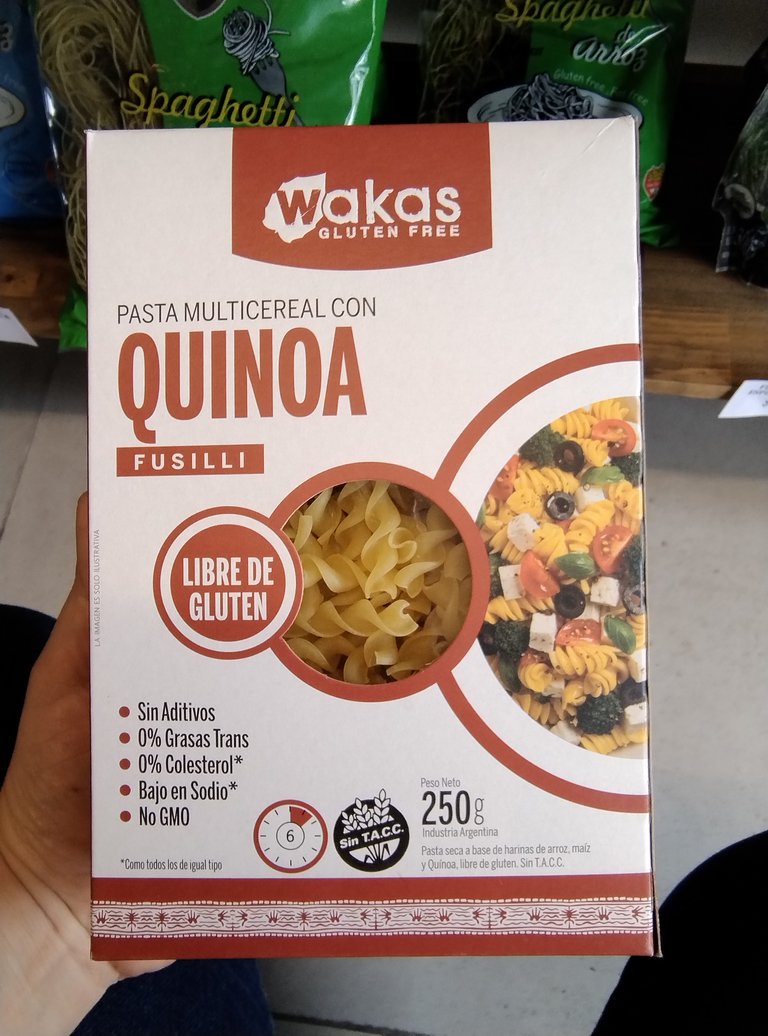
¿Sin TACC, sin gluten?
Hace algunos días vengo observando veriedad de espagueti y otras pastas que dicen sin gluten y me causan mucha curiosidad, porque hasta donde yo sé, la pasta tradicionalmente se hace con trigo y el trigo contiene gluten.
Estuve ojeando estas pastas y estan elaboradas principalmente de arroz, aunque tambien tienen un poco de maíz.
Una cosa que me llamó la atención desde que llegué a Argentina, es la gran cantidad de productos que indican sin TACC o sin gluten, cosa que no se veía en Venezuela (al menos no en Cumaná). Si es verdad que en Venezuela podías conseguir algunos de estos productos especiales, pero solo en comercios especializados.
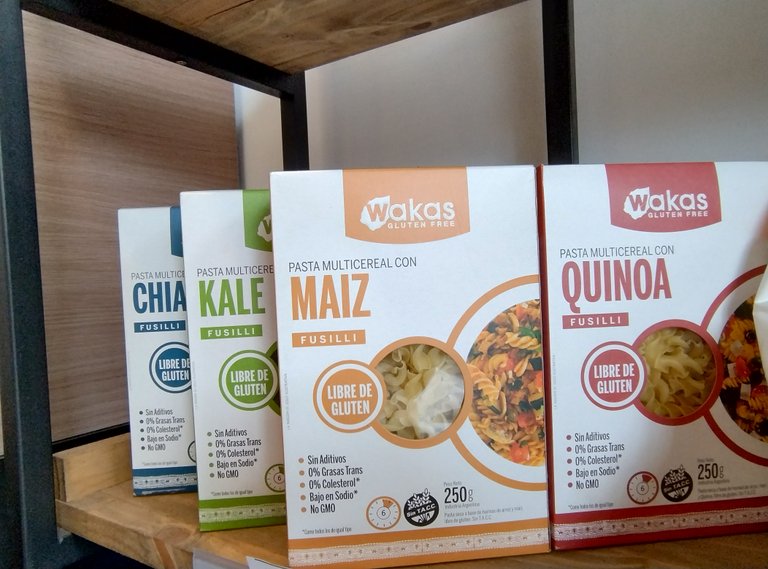
En todos los supermercados de Buenos Aires puedes encontrar una altisima cantidad de productos que indican sin TACC. Esta etiqueta indica que no contiene trigo, ni avena, ni cebada, ni centeno. Y no solo que no tiene esos ingredientes, sino que también se cuidó su proceso para que no se contaminara con ninguno de estos.
He visto dos tipos de etiquetas: Sin gluten y sin TACC, entonces... ¿Sin gluten y sin TACC no vendría a ser lo mismo? Y según entendí son equivalentes, pero hay alimentos que por naturaleza contienen gluten y que se les puede separar mediante un proceso. Por ejemplo la avena. Cuando se creó la etiqueta sin TACC creo que no se podía separar el gluten de la avena, pero ahora se le puede separar y podemos conseguir avena sin gluten. En esos casos se usa la etiqueta: sin gluten.
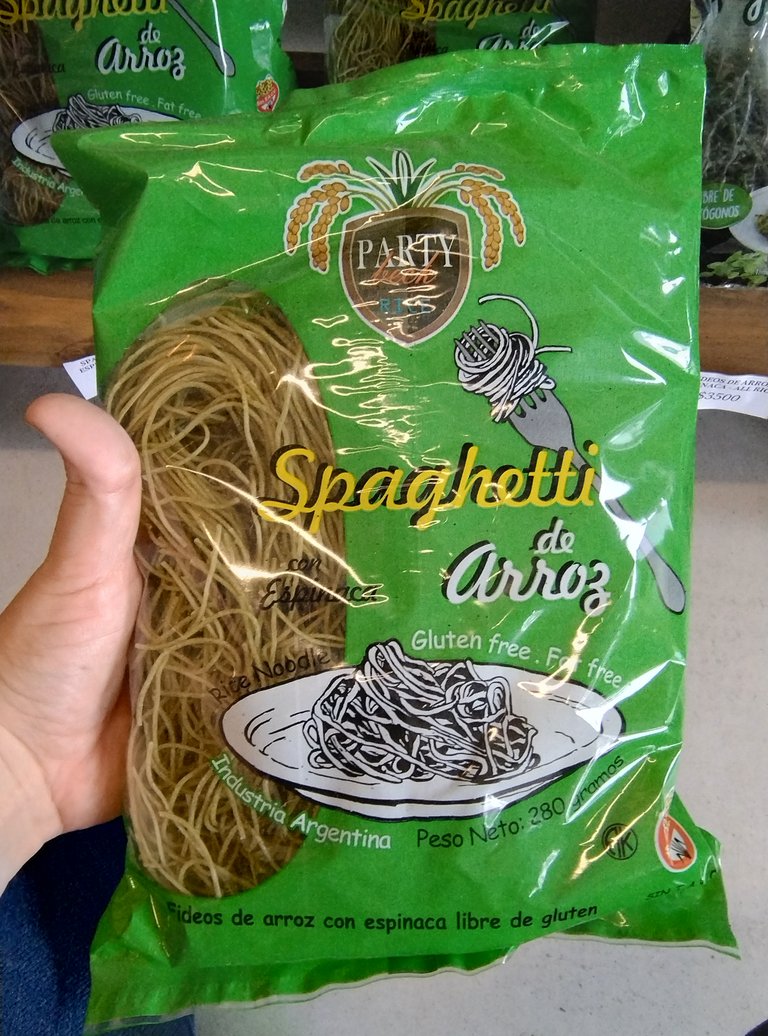
¿Quienes no pueden comer productos con gluten?
Algunas personas nacen con una intolerancia al gluten y deben eliminarlo de su dieta. Estas personas que padecen de lenfermedad celiaca deben llevar un regimen dietético especial.
Tambien hay algunas personas que tienen alergia al gluten o intolerancia no celiaca, que les produce sintomas similares al colón irritable y que deberían evitar el gluten.
Incluso algunas personas recomiendan minimizar o eliminar la ingesta de gluten para mejorar diversos aspectos de la salud, aunque según leí esos estudios no son concluyentes.
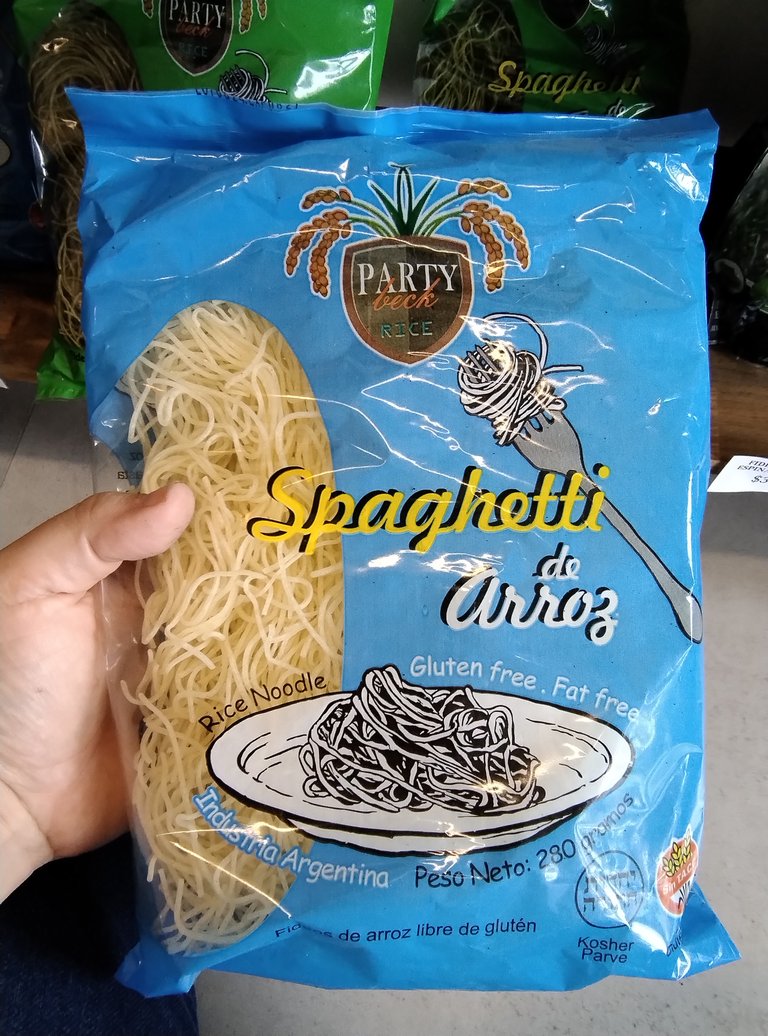
Ya sea por razones médicas o por elección, llevar una dieta sin gluten puede ser un poco costosa. Por ejemplo las pastas que fotografié para esta publicación vienen en presentaciones de 250gr y valen más o menos lo mismo que un kilo de pasta convencional, algunas un poco más.
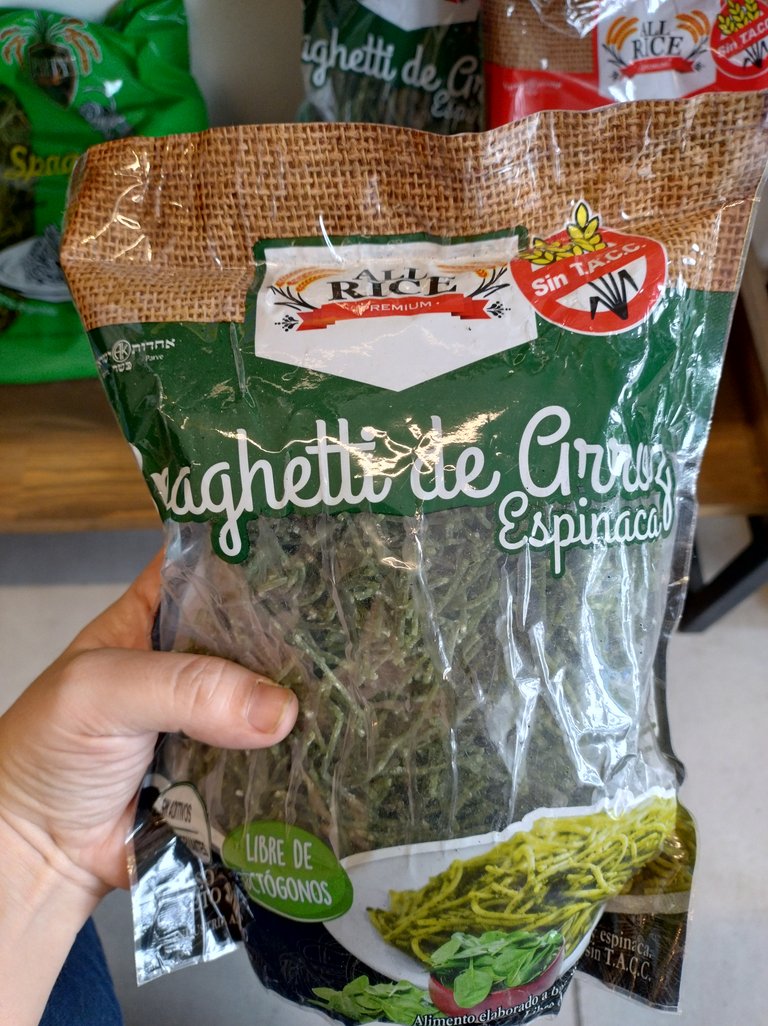
Me gusta saber que en Buenos Aires las familias que deben adoptar este regimen especial de alimentación tiene variedad de opciones para hacerlo y espero que algún día Venezuela ofrezca mayor variedad y oportunidad a quienes requieran alimentarse diferente.
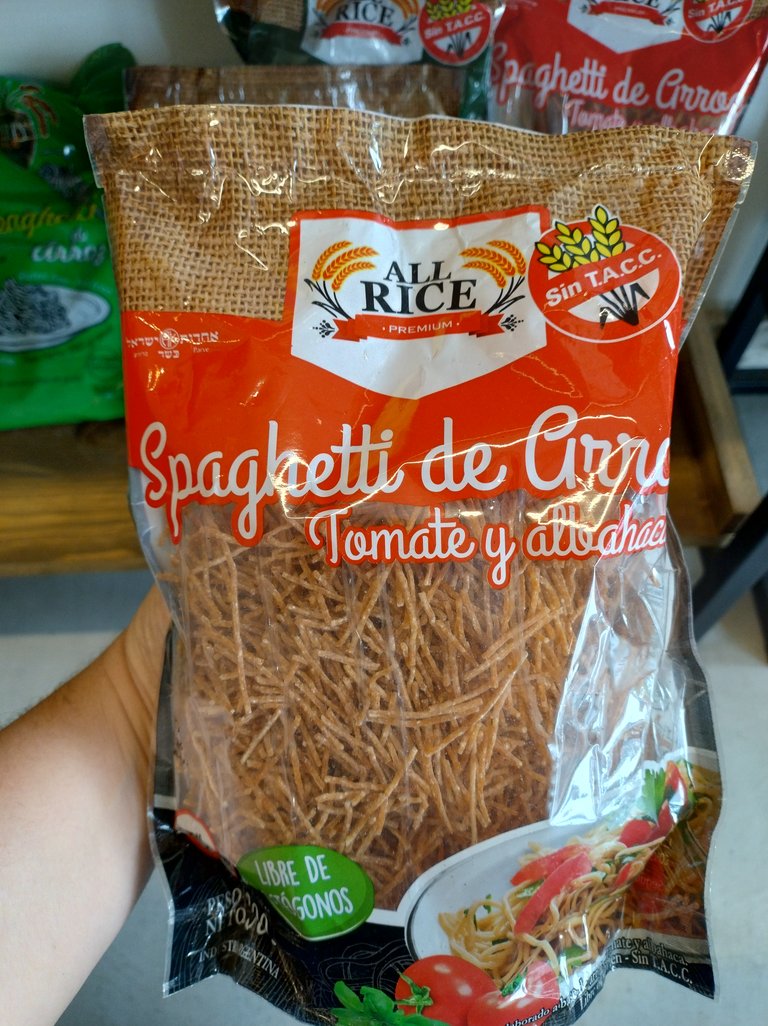
Les dejo fotos de estas variadas pastas porque me parecen una opcion interesante.
English version by Google translate

TACC-free, gluten-free?
For a few days now I have been seeing a variety of spaghetti and other pastas that say gluten-free and I am very curious, because as far as I know, pasta is traditionally made with wheat and wheat contains gluten.
I was looking at these pastas and they are made mainly from rice, although they also have a bit of corn.
One thing that caught my attention since I arrived in Argentina is the large number of products that say TACC-free or gluten-free, something that was not seen in Venezuela (at least not in Cumaná). It is true that in Venezuela you could get some of these special products, but only in specialized stores.

In all supermarkets in Buenos Aires you can find a huge number of products that say gluten-free. This label indicates that it does not contain wheat, oats, barley or rye. And not only does it not have these ingredients, but its processing was also carefully done so that it was not contaminated with any of these.
I have seen two types of labels: gluten-free and gluten-free, so... gluten-free and gluten-free wouldn't be the same thing? And as I understand it, they are equivalent, but there are foods that naturally contain gluten and that can be separated by a process. For example, oats. When the gluten-free label was created, I think gluten could not be separated from oats, but now it can be separated and we can get gluten-free oats. In these cases, the label: gluten-free is used.

Who cannot eat gluten products?
Some people are born with a gluten intolerance and must eliminate it from their diet. These people who suffer from celiac disease must follow a special dietary regimen.
There are also some people who have a gluten allergy or non-celiac intolerance, which causes symptoms similar to irritable bowel syndrome and who should avoid gluten.
Some people even recommend minimizing or eliminating gluten intake to improve various aspects of health, although according to what I've read, these studies are not conclusive.

Whether for medical reasons or by choice, following a gluten-free diet can be a bit expensive. For example, the pastas I photographed for this post come in 250gr presentations and cost more or less the same as a kilo of conventional pasta, some a little more.

I like to know that in Buenos Aires families who must adopt this special diet have a variety of options to do so and I hope that one day Venezuela will offer greater variety and opportunity to those who need to eat differently.

I am leaving you photos of these various pastas because they seem like an interesting option to me.

All images are my own, taken with a Motorola Edge 30 Neo phone
Todas las imágenes son de mi autoría, tomadas con teléfono Motorola Edge 30 Neo